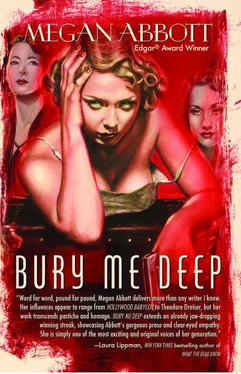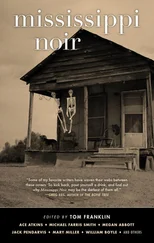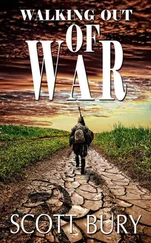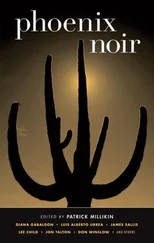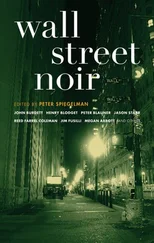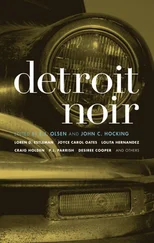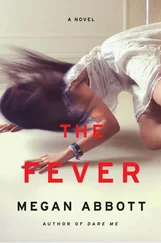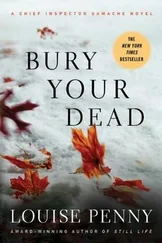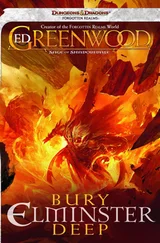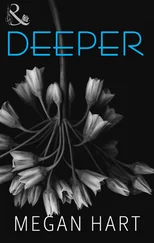Joe Irish, Gent Joe, Mr. Joseph Lanigan did not notice her from his dim perch and the music was loud and bumptious, and seeing his face after all this time almost broke her, almost split her into so many pieces, seeing that sheaf of yellow hair, the smile, curling and confident and filled with forget.
He was able to put things away, stow them in far places, on high shelves and in deep dresser drawers, and forget them, and forget things about himself, and he could even, when he wanted, pull them down and show them to people and calmly put them away again as if they were not his.
But she could not, she could not and how dare he put her in a creaking drawer in some hidden room he seldom went, how dare he put her there and put what he had done there too when she could not, when it flooded through her every minute of every day and when he did too and Joe still did too, still flooded and overtook her.
And he is here, and those bright girls and that sad, kind doctor are not and…and…
“It had to end,” a voice muttered, her own. She began to wonder what she really meant to do. The words will come when I see him, she had told herself, but there was a quivery fear in her now because she no longer knew herself. The new self, the old self or that quaking self in between.
He turned and, in turning, spotted her. Oh, there it was, she caught it, she did, the gaudy fear crashing across his face. It was beautiful and made her feel she could do anything.
But he recovered in an instant and then it came again, that sly, cunning mask he could drop across his face at will. A reckless choice, but he made it anyway.
“My honey-locked jailbird, there she is,” he clucked amid the din, and she thought for a moment that he might slap his other knee, the one free of the showgirl’s lovesome bottom, and bid her to sit and join his bawdy party.
But he was not quite so foolish. He saw her face, saw the things in it, and quickly, cleanly removed the feathered showgirl from her roost and pushed her on her way, giving Marion his eyes, his face, newly painted sincere. She knew that dodge too. She knew all his dodges.
“You locked me away,” her mouth spilt forth, “threw the key in the sand, but here I am and guess what I have done. Guess what awaits you, Joe Lanigan.”
But her words, they were buffered, near soundless. There was nothing but cymbals and lurching slide trumpets and the hoorahs of hundreds of jostling tuxedoed men, their pleated shirtfronts popping loose as they pressed and churned around her, one shouting, reaching out with clambering hands, “Where are the girls? I’ll take this new-minted one, if you please.” She pushed herself closer toward him, the two of them now shadowed beside the quaking bandstand.
Trying again, she felt a rushing in her mouth, like she might choke.
He looked at her, he waited, that bolt of lustrous hair, the violet nosegay on his suit. She fought off a fearsome wave of soft, broken memories of him and he, sensing it, raised his hand slightly, as if to reach for her own.
The sight of it filled her with fresh horror.
“I’ve been waiting for you, Marion,” he said. “In my way, I have.”
Something vaulted up inside her and she felt her body jerk forward, her hand plunging into her pocket and reaching for that pistol, which, in a dark blur before her eyes, was suddenly at the far end of her arm outstretched.
The thing jumped in her hand, the tiny Colt did, and it was only then that she knew she had fired it. A pierce in her ear and her hand had lifted so high, to the top of a thick column, a bullet wedging in the carved oak.
She spun around, gun in her hand, but the music screeched on and only a handful of men crushed right behind them could be bothered to lift their nuzzling heads from their girls, from their creamy follies. The sound of the gunshot, so thunderous in the Hussel Street living room, barely a whisper here.
Those who did see stood stock-still, one pink-faced man hissing excitedly, It is she!
She thought they would descend upon her, but they saw the thing in her hand, they had heard it. They could scarcely believe their eyes.
“Marion,” she heard him say, and she looked at him, his face slipped to white. “Marion, no. Marion, no, don’t you see?” He looked anxiously at the clutch of men motionless, fear struck, not ten feet from them. “Marion, your husband’s sins, don’t make them your own.”
This was what he said to her. The feckless words whistling in her ear, and before she could think, her arm lifted again and she pointed this time at him, trying to rise, shirtfront showgirl-spangled. She felt the charge through her entire body as the bullet lacerated his knee, the crackling loud and victorious, the blood a glory shot.
He cried out and she had never heard such sounds from him, a dreadful bleat, and the men staggered back from them both.
It was all so stunning. She felt her body lifting, radiating. Looking around, she thought, Have I bullets enough? I may shoot them all.
His eyes were so wide and his face lowered, sinking into the spray of violets on his lapel.
From somewhere in the din, a recognition of the sound, a drunken voice crying out, “They’ve got fireworks!” and another pulling a pistol of his own, waving it gleefully as if in some Wild West saloon.
She didn’t care, didn’t care at all. She held that gun and felt its heat in her hand. In ways old and churchlike she knew it was not right. But part of her felt shooting him in that dark, hollowed heart of his would be the rightest thing she’d ever done. Righter somehow than anything that could be done.
“Marion,” he said, voice slipping into her ear. “I know what I am. Believe it.”
It was his return blow and it landed. She felt it all. He was saying, You knew me. You knew what I was. You ran toward it. Don’t forget how you ran toward it.
She thought of Everett, at the end, staring into the dank center of things, she thought how that descent must have felt, the softest curl of oblivion, the place he’d been trying to reach since he first took hold of the needle’s giddy bloom. Was that for her? To end and end and end?
It adds to truth a dream.
“No,” she said, shaking her head. “That wasn’t it. That wasn’t it at all.” The weight of the gun in her hand, his sorrowful face, she felt herself sinking.
Something rattled in her, the blood memory of Ginny, face crumpled like shiny paper. She had done such things. She had seared and hammered and destroyed. She had turned herself into such a dark thing, for him. To tear his sneer away with a hot bullet, would that redeem her now, redeem her lost friends, her direful, doomed husband?
Or would it only bury his sins, bury them with him?
And after, she would be lost to the abyss that would follow, which would swallow her. That black whorl of nothingness she now knew so well.
Fighting it, she thought of Mr. Worth, she imagined his furtive connivances, the gin-drenched whisper to the right reporters. He would not fail. It will be, she knew it. Tomorrow, the next day and for weeks to come, the newspapers will do their dance— and they will, God help that butcher of mine, she thought—and, with each screaming headline, all these men, these fickle, sad little gents with their hunger and their loneliness, will throw Joe Lanigan to the wolves to save their own skins. Beat back the blood, Marion, she told herself. Let these silk-coated confederates eat his black heart. It is their world. Let them to it.
She looked down at him, clinging to his shattered knee, the white of bone shining through the pants leg. He looked so small.
“Now it is your turn to watch me,” she said, looking once more into those lost, careless eyes of his. “There are levers, switches, keys and I know which way they all go.”
Читать дальше
